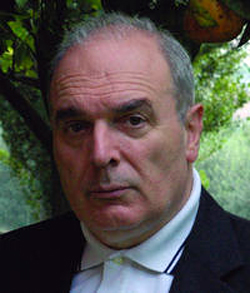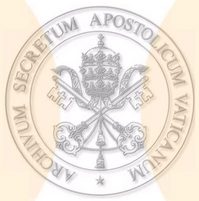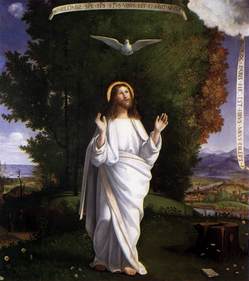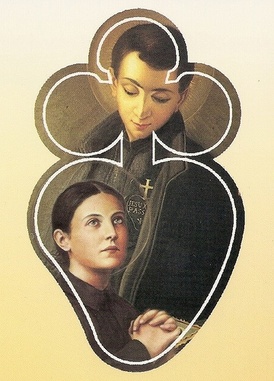“Up Close” with Diana Williams’ of ABC 7 in NYC interviewed Archbishop Tim Dolan on his first year as chief shepherd of the NY Archdiocese, the second largest in the USA. All of his joy on being a priest and a bishop comes through in the interview. Thanks be to God because we need Archbishop Dolan’s pastoral leadership and theological connection with Pope Benedict XVI. Watch the three-part interview: Parts 1, 2, and 3.
Month: February 2010
Transfiguration Sunday: Listen to Jesus!
My heart has prompted me to seek your face; I seek it, Lord; do not hide from me.
The Church observes the Second Sunday of Lent. The following hymn incorporates the texts from sacred Scripture.
Gone forth from home with God to guide him,
Abram looked up and saw the sky:
“Even as stars you cannot number,
So shall your offspring multiply.”
God there with Abram cov’nant made,
Promise that shall not change or fade.
Jesus went up upon the mountain,
And there, transfigured ‘fore their eyes,
Saw the disciples “law” and “prophets,”
Standing there next to Jesus’ side.
“This is My Son, ” they heard the voice;
“Listen to Him, He is My choice!”
Each of us, baptized in Christ Jesus,
Is launched on journey hard and long
Where we are daily called to cov’nant,
Following Christ with joyful song.
Do not give way! Now faithful bide,
Clinging to Cross as boast and guide!
Is a Strong Priesthood In the World’s Future? asks Massimo Camisasca
 On February 26th Zenit published an article by Father Massimo Camisasca looking at what he considers to be the pillars (prayer & Liturgy) of priestly reform in the Catholic Church. Reading a bit of Church history recently there’s been a lot to consider when thinking about the state of the Catholic Church viz. the rise of Portestantism and then the decline of the Christian religion in some parts of the
On February 26th Zenit published an article by Father Massimo Camisasca looking at what he considers to be the pillars (prayer & Liturgy) of priestly reform in the Catholic Church. Reading a bit of Church history recently there’s been a lot to consider when thinking about the state of the Catholic Church viz. the rise of Portestantism and then the decline of the Christian religion in some parts of the
Statistical data of the past 30 years reveals an increase of 5% more diocesan priests worldwide, compared with an increase of 48% more baptized persons.
This alone could explain the question in the title of my latest book, “Padre ci saranno ancora sacerdoti nel futuro della Chiesa?” (Father, Will There Still Be Priests in the Future of the Church?) — a theme that underlies the entire text.
However, even more than the number of priests, the Church is interested in the truth of their experience. For reasons connected with my work as superior of a fraternity of missionaries, I travel throughout the world and am in contact with the most diverse realities. And, meeting with priests of different regions, I note that many of them experience difficulties not so much of an ideological type as of an emotional order.
Why is it that today the priestly life — which has made thousands of men happy and contributed enormously to the spiritual growth of humanity — is going through such a profound qualitative crisis?
My [Italian-language] book stems from this question. It is an attempt to rethink the life of a priest from its roots.
Rebirth
The regeneration of priestly life is one of the conditions for the new flowering of Christianity in
I have attempted to trace the path for a rebirth returning to the fundamentals of the priesthood. I find one of those fundamentals in prayer.
Today many priests lose themselves in action, in the infinite number of activities and preoccupations that entrap them. For the action of each one of us to always be a source of nourishment, it must be constantly redirected to our relationship with Christ. And the place of our relationship with Christ is prayer, inseparable from silence.
Silence, prayer, reflection and study are the answer to one of the evils that afflict the figure of the priest: activism, which remains on the surface of things and absorbs the time of our energies and our feelings. Instead, action that stems from charity introduces us in the work of God, who precedes and exceeds us.
Liturgy
Another pillar of the renewal of priestly life is the liturgy. I say this following the teaching of the Pope. I am not ruled by the desire to accommodate myself to a current, but by a profound conviction that is born from experience.
If the priest does not rediscover the true meaning of the liturgy in his life, he cannot find himself.
Surmounting the process of trivialization, which we have witnesses in the last 30 years, it is necessary to return to that “fons et origo” that the Second Vatican Council identifies in the liturgy.
When it is faithful to the one who instituted it, when it is lived in all its rigorous totality and is attentive to the tradition of the Church, the liturgy is the place of education to communion.
The protagonist of the liturgy is Christ. By living the liturgy, we can enter into the life of God, and only thus can we priests be an effective company of men.
In the third place, the emotional question is central in the life of a priest. Loneliness is the other great evil that today afflicts thousands of priests.
Only by discovering himself a son can the priest be a father.
Friendship is a positive experience in a person’s emotional life. In the Church there is still much fear of friendship. Pathologies are not channeled if one is not helped to develop a healthy life.
Unhealthy and negative friendships, which because of this are not proper friendships, must not close us off from the essential value of these bonds of preference that open us to the love of others and help us to understand who God is.
Spiritual Ecumenism and dialogue, Pope Benedict addresses the ELCA
Keeping up with Pope Benedict can be a difficult task, even for the strong; the pope does so much work in given week that most people would wilt. However, because he has such an excellent staff, much is possible. Key to understanding Benedict’s ecumenical work is his openess to collaborating with the Spirit and with others Chrisians for full visible communion desired by Christ and the Church, particularly since Vatican II. Additionally, his insistence on spiritual ecumenism is always noteworthy because without prayer none of ecumenical diagolue work makes a bit of sense. Plus, the pope raises the all-important matter of harvesting the fruit already done by the churches. So often we work hard on some document or event but fail to assess the fruit of the document or event to see what fruit there is and how it’s maturing. The lack of critical and honest engagement with the issues and the prudential enactment of the dialogue is fraustrating to lots of people. It is likely that many people have missed the news of of the Pope’s recent meeting with a delegation from the Evangelical Luthern Church in America (ELCA) on Wednesday, 10 February 2010, where he said (emphasis added):
“Since the beginning of my Pontificate, I have been encouraged that relations between Catholics and Lutherans have continued to grow, especially at the level of practical collaboration in the service of the Gospel. In his Encyclical Letter Ut Unuum Sint, my beloved Predecessor Pope John Paul II described our relationship as “brotherhood rediscovered” (n. 41). I deeply hope that the continuing Lutheran-Catholic dialogue both in the
I conclude by renewing the wish expressed by my Predecessor, during whose Pontificate so much was accomplished on the road to full visible unity among Christians, when he said to a similar delegation from the
Upon you and all those entrusted to your pastoral care, I cordially invoke the abundant blessings of Almighty God.
Bishop Declares Humanitarian Emergency in Mosul
As a follow-up to a request for prayers for the Dominican sisters in Mosul the other, I am republishing Edward Pentin’s article for Terrasanta.net here to give further background to the situation in Iraq, especially since the Western press and politics have virtually ignored the plight of Iraqui Christians.
The news has escaped much of the mass media, but Christian families are leaving
Chaldean Bishop Emil Shimoun Nona has said that
The families have chosen to flee after a spate of violent attacks which left five Christians dead last week, and members of a whole family murdered on Tuesday. “In one house all the family members were killed — five people,” said an Iraqi member of Open Doors, a non-denominational charity helping persecuted Christians, Christian News Wire reported. “First the attackers drove by and shot from their car. Then they forced themselves into the house and gunned down the entire family. They even threw two bodies outside the house as a cruel warning for others.”
Archbishop Louis Sako of
Cardinal Tarcisio Bertone, Vatican Secretary of State, told
Speaking to Terrasanta.net Feb. 22nd, Archbishop Sako said the elections are prompting struggle between political groups made up of Arabs and Kurds. “They are fighting to have authority, power and also the economy and there’s a big tension,” he said, adding that in
In a speech given Monday to the Sant’Egidio community in
He also said Iraqi Christians feel neglected by the West. “[They] have the impression of being forgotten by the West that is secular,” he said. “In the past, some might have wanted to protect Christians but now we have the impression of being isolated and forgotten by all.” The
Documents between 1939-45 on Pius XII papacy
The Vatican Publishing House is making available, free of charge on the internet, more than 8,000 pages of the Actes et Documents du Sainte-Siège relatifs à la Seconde Guerre Mondiale (1965-1981) edited by Jesuit Fathers Pierre Blet, Angelo Martini, Robert A. Graham and Burkhart Schneider.
 The release of these documents are the result of a request of the Pave the Way Foundation (PTWF) made to the Holy See to digitalize and publish 5,125 documents of the Vatican Secret Archives dated from March 1939 to May 1945. PTWF president Gary Krupp said his Foundation aims to remove the barriers between Catholic and Judaism. He told Jesús Colina of Zenit, “In the futherance of our mission we have recognized the papacy of the war time Pope Pius XII as a source of friction impacting over one billion people.”
The release of these documents are the result of a request of the Pave the Way Foundation (PTWF) made to the Holy See to digitalize and publish 5,125 documents of the Vatican Secret Archives dated from March 1939 to May 1945. PTWF president Gary Krupp said his Foundation aims to remove the barriers between Catholic and Judaism. He told Jesús Colina of Zenit, “In the futherance of our mission we have recognized the papacy of the war time Pope Pius XII as a source of friction impacting over one billion people.”
More information on the Vatican Secret Archives may be found here.
From athlete to religious life
 A few weeks ago Yahoo sports posted a story that caught my attention (but I am only now getting around to posting it, sorry) about a former world-class speedskater now on a journey to the vowed life as a Franciscan Sister of the Renewal.
A few weeks ago Yahoo sports posted a story that caught my attention (but I am only now getting around to posting it, sorry) about a former world-class speedskater now on a journey to the vowed life as a Franciscan Sister of the Renewal.
Saint Gabriel of the Sorrowful Mother
Among the young saints of the Church are those who followed the Passionist charism, that is, those who made the paschal offering of Christ on the cross and His sorrowful mother so very central to their. The oblation of Christ crucified is THE Christian spirituality of our day, especially given the suffering many of us endure for the faith and for Saint Gabriel of the Sorrowful Mother is one such figure that we would do well to spend time learning. As the Mass collect above suggests, we are to ask for the grace to participate in the Lord’s Passion with the hope of his glory. This is the destiny of all Christians.
Archbishop Dolan notes a need for coherence in faith & public order
In a NY1 Exclusive interview with NY’s Archbishop Timothy M. Dolan the other day, the Archbishop spoke about many things including NY politics, culture and he distinguishes between being welcome to attend events and being honored at publicly sponsored Catholic events. A topic many Catholics are familiar with in recent years, especially at university graduation time. This is question is also on the plate since the St Patrick’s Day Parade is fast approaching at which the gay and lesbian activists normally cause a stir because of perceived anti-Catholic bias toward their lifestyle and then in fall there’s the Al Smith dinner where Catholics and politicos rub shoulders at a high profile dinner. People want to know what and how the Church is going to handle such situations; the Catholics need solid guidance and reasons for belief and hope. The Archbishop is clear that when it comes to faith and the public order people we need (want!) good leadership who live lives with honesty and that the public have an expectation that civil and religious leadership be questioned about their lives. Good governance depends on coherent life. Politically people are asking these questions in light of the recent troubles of NY governor David Paterson, a Catholic and yet pro-abortion, not to mention pro-liberal on all topics.
Iragi Christian community & the Dominican sisters in danger: Urgent prayers needed
This afternoon, I received a request for prayers, which I now recommend to you, for the Christians in Iraq. The following note was sent by Sister Donna Markham, the Prioress of the Adrian Dominicans:


